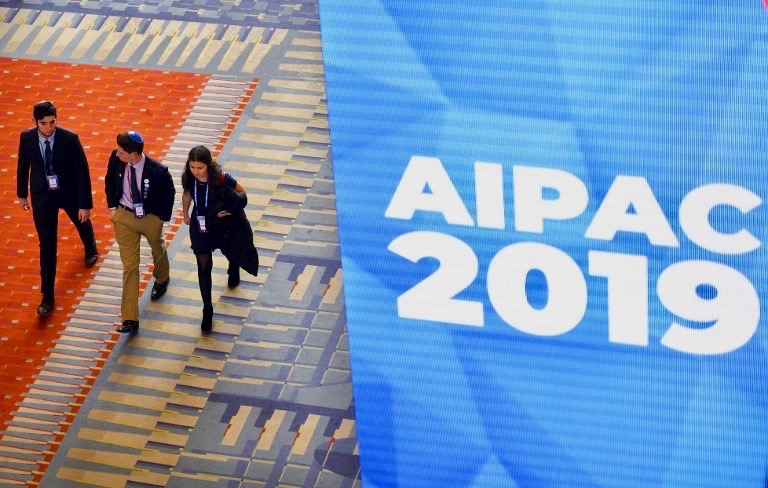AIPAC pledge dispute: Romania will move embassy to Jerusalem, PM says

The Romanian prime minister promised on Sunday in Washington that her country would move its embassy in Israel to Jerusalem from Tel Aviv, breaking with both the European position and with her own country's president, who hours later contradicted her.
Prime Minister Viorica Dancila made the announcement at the annual conference of the American Israel Public Affairs Committee (AIPAC), an influential pro-Israel lobby, AFP reported.
Her stance would align Romania with the US position under President Donald Trump, and it came on a day when Israeli Prime Minister Benjamin Netanyahu was beginning a Washington visit to include an AIPAC appearance and a meeting with Trump.
Netanyahu subsequently tweeted his congratulations to Dancila for informing AIPAC "that she would act to complete the procedures needed to open the Romanian embassy in Jerusalem."
New MEE newsletter: Jerusalem Dispatch
Sign up to get the latest insights and analysis on Israel-Palestine, alongside Turkey Unpacked and other MEE newsletters
Still, it marked an awkward break with the position of the European Union at a time when Bucharest holds the EU's rotating chairmanship.
And just hours after Dancila told the conference that her country would move its embassy to Jerusalem, her statement was strongly contradicted by the country’s president, who opposes the move and has a final say on foreign policy issues, Israeli newspaper Haaretz reported.
President Klaus Iohannis called his prime minister “ignorant” for making the statement, which had received strong applause from those attending the pro-Israeli conference, Haaretz noted.
Dancila told applauding AIPAC members: "I, as prime minister of Romania, and the government that I run, will move our embassy to Jerusalem."
Netanyahu, who had called on his Romanian counterpart in January to announce the transfer, on Sunday welcomed her move.
"I congratulate my friend, the prime minister of Romania, Viorica Dancila, on her announcement at AIPAC that she would act to complete the procedures needed to open the Romanian embassy in Jerusalem," the Israeli leader tweeted.
Her announcement drew criticism from senior Palestinian official Saeb Erekat, who called it "a blatant violation of Palestinian rights, international law, and UN resolutions".
Erekat said the move "only contributes to eliminating the two-state solution".
He called on the European Union to take action over the decision and said the matter would be raised with the Arab League and the Organisation of Islamic Cooperation.
During an April 2018 visit to Israel, Dancila had said she lacked the domestic support to make the move.
Israel claims the entire city as its capital, while the Palestinians see the eastern sector as the capital of their future state.
The United Nations contends that the matter can only be settled between the Israeli and the Palestinian people and that until such a resolution, countries should not shift their embassies to Jerusalem.
Honduras takes step
Honduran President Juan Orlando Hernandez, also speaking at AIPAC, on Sunday referred to Jerusalem as Israel's capital, saying the Central American country would open a trade office there, but he stopped short of announcing plans to move his embassy from Tel Aviv.
Hernandez has in recent months signalled that his government is mulling moving the Honduran embassy to Jerusalem, Reuters said.
"Today I have announced the first step, which is to open a trade office in Jerusalem, the capital of the state of Israel, and this will be an extension of our embassy in Tel Aviv," Hernandez said in a statement issued by his government.
"I've said that a second step will draw a lot of attacks from the enemies of Israel and the United States, but we will continue along this path," Hernandez added.
Hernandez, an ally of the US, said the trade and cooperation office would open immediately in Jerusalem.
His foreign ministry said in a statement that Israel would in a reciprocal gesture open an office for cooperation in Tegucigalpa, giving it diplomatic status.
Middle East Eye delivers independent and unrivalled coverage and analysis of the Middle East, North Africa and beyond. To learn more about republishing this content and the associated fees, please fill out this form. More about MEE can be found here.





